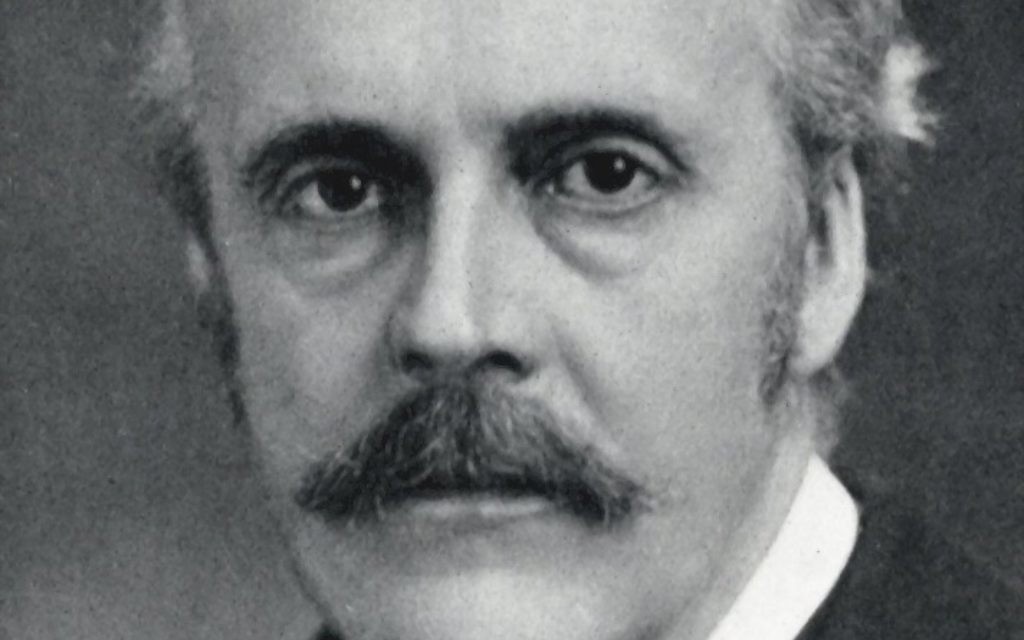Atlanta Celebrated Balfour Declaration in 1917
The Balfour Declaration's centennial highlights passage of immigrants to the U.S.
Nov. 2 marks the centennial of the Balfour Declaration, the British document that, for the first time in modern history, promised the Jewish people a homeland in Eretz Yisrael — then known as Palestine.
What did world Jewry do when this letter from Sir Arthur Balfour to Lionel Rothschild was written and became public? There were so many events connected with that moment, but an Atlanta story should be remembered.
Living in Atlanta after arriving from Jerusalem in 1915 was Abraham Amato, a Sephardic Jew born on the island of Rhodes. He had spent almost 15 years in Jerusalem, where he married and had two children. When the crisis of World War I pitted the British against the Ottomans, Amato was able to leave Jerusalem because he had a foreign passport.
Get The AJT Newsletter by email and never miss our top stories Free Sign Up
He was allowed to immigrate to the United States, where he joined family in Atlanta.
His wife and children did not have foreign passports because they all were born in Jerusalem. Amato left thinking that he could quickly arrange for them to come to Atlanta. But when fighting broke out in the area of Palestine, that was not possible.
In Jerusalem the Jews suffered greatly because there was hardly any food.
The American ambassador to the Ottoman Empire, Henry Morgenthau, arranged for a ship to take American Jews out of the war zone to America. Morgenthau also secretly transferred money sent from the United States to the American consul in Jerusalem, who distributed it to the local Jews, who were suffering terribly.
Before returning to Amato in Atlanta, we need to understand how the Balfour Declaration came into being. Chaim Weizmann lived in England and was a leading Zionist figure in the years after Theodor Herzl’s death in 1904. There are several suggestions that the British felt the Jews should get a homeland as a favor to Weizmann.
Weizmann was a scientist who developed a process for producing the acetone needed for explosives. There are other reasons why Weizmann was so well liked in England, but acetone seems the most important.
The discussion in the British Cabinet about proclaiming a Jewish homeland began in the spring of 1917. As Gen. Edmund Allenby led British troops to victory after victory against the Turks, British leaders felt that the fall of Palestine would be the perfect time to proclaim a Jewish homeland.
There were Cabinet members who opposed such an act, however, because of Britain’s friendship with the Arabs.
Recently, Rabbi Stuart Geller of Jerusalem has once again pointed out in an essay how important Justice Louis Brandeis was in this process. Brandeis was so important that Weizmann sent him a draft of the declaration, and the justice made a few suggestions.
Brandeis’ key role, however, was convincing President Woodrow Wilson that such a declaration should be issued. When Wilson was in England in the early fall of 1917, he suggested that it was time for the British to make a statement about the Jewish presence in Palestine.
The British agreed, and on Nov. 2, 1917, the document was made public.
In Atlanta there was excitement in the air. A communitywide celebration was held at the Jewish Educational Alliance. The rabbis from Ahavath Achim Synagogue and Congregation Shearith Israel participated.
Amato was still waiting. With the Balfour Declaration now a reality, it was hoped that soon Allenby would capture Jerusalem.
After significant battles won by the British, including the capture of heavily fortified Be’er Sheva by the Australian and New Zealand Army Corps on Oct. 31, Allenby walked into Jerusalem on Dec. 11, 1917, to show respect for this special metropolis.
On the front page of the Atlanta Constitution the next day was a story about how it would now be possible for Abraham Amato to bring his family from Jerusalem to Atlanta.
It took a few years before his wife and two children could obtain visas to enter the United States. When they arrived in Atlanta, Congregation Or VeShalom held a celebration.
The son in the family, David Amato, rose to become an American consul general in Mexico.
The Balfour Declaration and the Allenby victory gave the Amatos their chance for freedom in the Southern United States.
Text of the Declaration
His Majesty’s Government view with favour the establishment in Palestine of a national home for the Jewish people, and will use their best endeavours to facilitate the achievement of this object, it being clearly understood that nothing shall be done which may prejudice the civil and religious rights of existing non-Jewish communities in Palestine, or the rights and political status enjoyed by Jews in any other country.






comments